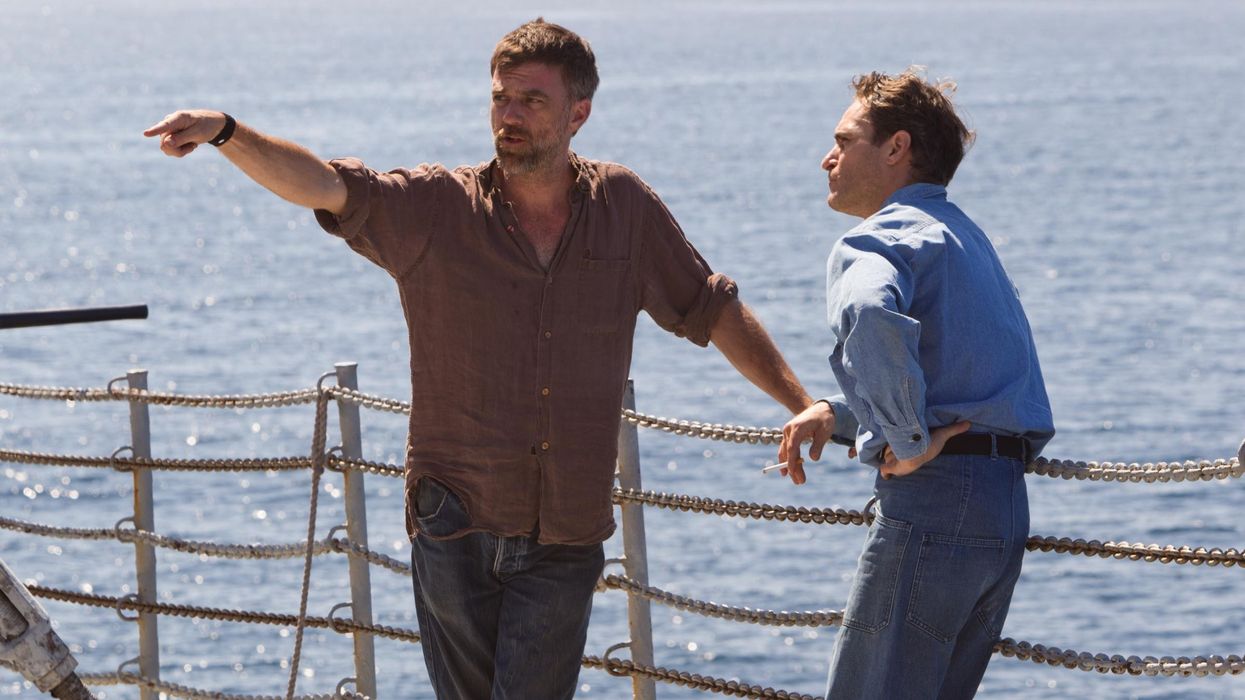Paul Thomas Anderson Says We Need Movies of All Sizes for Hollywood to be Successful
This Valley kid wants us all to believe in the power and magic of movies.

Every Paul Thomas Anderson interview during his Licorice Pizza press tour feels like a wide array of movie recommendations, state-of-Hollywood discussions, and advice for writers and directors.
His new profile in The New Yorker gets more personal, pulling at the 51-year-old director's habits and mechanisms he uses to write, along with discussing his love for the valley of Los Angeles, the setting of many of his films from Boogie Nights to Magnolia, to now, with the aforementioned Licorice Pizza.
As Anderson says, "The Valley is not the prettiest place in the world, it’s not the most cultured place in the world, I understand that, but it’s home."
We checked the whole profile out and decided to pull some other quotes we think would be relevant to you as writers and directors.

When it comes to Anderson's origins, he speaks about being a kid making movies. He recalls the heft of the camera and how he could instantaneously see results.
He said:
"I loved to make films as soon as I could. I was lucky enough to be wanting to make films when it became much easier because the camcorder, the home-movie camera, came around. Steven Spielberg was the shining star, but he was working in Super 8, so you’re actually cutting the film, splicing it or cementing it together. I had this device, this home-movie camera. It was huge and cumbersome, but you could immediately see the results. You could immediately put something together. You could learn rapidly. You could make a horrible movie one day then not a bad one the next day and then another one and then another one. You were able to keep practicing."
Of course, as he grew up he learned more and more about the process. Anderson was always directing, but he had to fall in love with writing as well. And his writing helped him become a much better director.
Of his process, he says:
"It all begins and ends with the writing. That’s an exaggeration, but the point of that is to say that, if the writing is good, you’ve got a very good shot at making a good film—or you’ve got a good shot of making your day. You’ve got some clarity that you’re walking into the situation with. And the reason you know is because when you write a scene that doesn’t work, you generally spend way too much time trying to do it. You spend too much time reshooting it, rewriting it, trying it a hundred different ways. And then you realize this thing doesn’t belong in the film."
Licorice Pizza seems to be the buzziest movie that is not about superheroes in ages. While it prepares to go wide, Anderson is quite aware that given the state of the industry, that feels special. So few original movies are given wide releases now. But the pandemic and the state of Hollywood are topics that affect us all.

Anderson says:
"Obviously it’s gotten even more complicated with streaming and the sort of overabundance of superhero movies. Most of the stuff I don’t take too seriously. I mean, it seems that there is a bit of a preoccupation with superhero films. I like them. It seems to be something that’s popular these days to sort of wonder if they’ve ruined movies and all this kind of stuff. I just don’t feel that way. I mean, look, we’re all nervous about people getting back to the theatre, but you know what’s going to get them back in movie theatres? Spider-Man. So let’s be happy about that."
We've had some big-name directors trash comic book movies lately, including Ridley Scott, who called them "boring."
It's refreshing to hear him carve out space for all kinds of movies. I feel like in a lot of these profiles filmmakers are pitted against tentpoles, but we really all need each other to make sure the industry comes back strong.

Television obviously made strides during the pandemic, but Anderson is not sure he would want to work in that realm.
Movies are in a constant battle with other forms of media, and when asked about television, Anderson produced a thoughtful answer. He understands what it takes to make TV, and also understands how it's different than what he does not.
"I wouldn’t say no, but I wouldn’t know where to begin. I had this conversation with Quentin [Tarantino]: I think neither one of us has a problem with writing material. Sometimes the problem can be cutting material, you know? Sometimes you’re in the middle of writing something and you have way more than you need and you go, Well, maybe this should be a TV show, you know? That’s not the solution. The solution is not to just use a lot of B-material and make a longer-form thing. The solution would be cut down, get to your good material, tell your story properly and make a film. So, I’ve never thought about it in a very serious way. I don’t watch a lot of it, so I don’t know exactly how it works. The structure is something I’d have to learn, you know. I don’t mean to sound like an idiot. Of course I’ve seen episodic television, but there’s a rhythm to that writing and a structuring of how you pull a story over multiple episodes, which at this point would be a huge learning curve. The people who do it, do it incredibly well. I think I’d feel a little bit like a tourist trying to step into that."
Did you read the long-form article? What were some of your takeaways from Anderson's interview?
Let us know in the comments.











